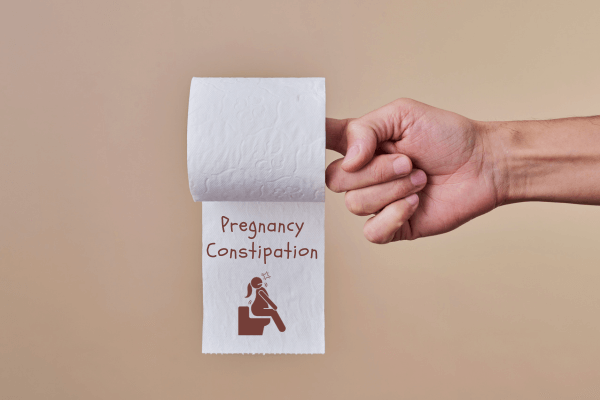The second trimester of pregnancy is the period between weeks 14 and 27 of a pregnancy and is calculated from the 1st day of week 14 through the last day of week 27. In this trimester your baby will grow rapidly from the size of a peach at the start of the trimester to a head of kale by the end of it.
It is often considered the “honeymoon phase” of pregnancy, as many women experience relief from the nausea and fatigue that can occur during the first trimester of pregnancy, and before the discomforts of the third trimester set in.
What is the second trimester of pregnancy?
The second trimester is the period between the 14th and 27th week of pregnancy. During this phase, the fetus continues to grow, and the mother’s body adapts to the changes happening inside her. You may feel your baby moving for the first time, and this can be an exciting experience for many expecting mothers. The baby’s organs continue to develop, and the skeleton becomes stronger. The baby’s eyes begin to move, and they can hear sounds coming from outside the womb.
Signs of a healthy second trimester of pregnancy
The second trimester of pregnancy is generally the easier and more comfortable period of the entire pregnancy. Expecting mothers report better sleep during the second trimester leading to overall improved health and well-being. Another good news that accompanies the second trimester is ‘no more morning sickness’. Morning sickness is common during the first trimester, but it usually subsides by the second trimester.
Here are some signs of a healthy second trimester of pregnancy:
- Growing Baby Bump: As your baby continues to grow, you’ll start to notice your belly getting bigger. This is a sign that your baby is developing and getting the nutrients they need.
- Increased Energy: During the second trimester, many women report feeling more energetic and less fatigued than they did during the first trimester. This could also come from the morning sickness subsiding and from the better sleep you get.
- Foetal Movement: You will start to feel your baby’s movements during the second trimester. This is a sign that your baby is healthy and developing as expected.
- Healthy Weight Gain: It’s normal to have weight gain during pregnancy, but it’s important to do so at a healthy rate. Weight gain during the second trimester will depend on your pre-pregnancy weight. Your doctor will be able to estimate how much weight you should gain based on your BMI (body mass index). (See the FAQ at the end for more more info).
Remember, every pregnancy is different, and some women may experience symptoms or complications during the second trimester that could need medical attention and care. It’s important to go to all your prenatal appointments and report any concerns or unusual developments or symptoms.
What tests will I have during the second trimester of pregnancy?
Regular prenatal care is crucial to ensure a healthy pregnancy. During the second trimester, you can expect to undergo a series of tests to monitor your health and the development of your baby. Here are some common tests you can expect to have during the second trimester of pregnancy:
- Blood Tests: Your healthcare provider may recommend a variety of blood tests during the second trimester to check for any health issues. These tests may include screening for gestational diabetes, anaemia, and sexually transmitted infections.
- Glucose Screening: Glucose screening is conducted using a test called Oral Glucose Tolerance Test (OGTT) to check for gestational diabetes. This test involves drinking a sugary drink and then having your blood sugar levels checked. Read more about it in our detailed post on gestational diabetes.
- Detailed Fetal Anomaly ultrasound scan: During the second trimester, your healthcare provider will perform an ultrasound to check your baby’s growth and development. This scan examines the baby’s physical structure, including heart, lungs, spine, brain, bones, and organs like liver, stomach, intestines, kidneys, and bladder. The scan is conducted by a sonographer or obstetrician, using an advanced ultrasound machine with 70% accuracy in detecting abnormalities. Certain abnormalities may indicate genetic conditions, such as Down Syndrome, prompting further testing to confirm or exclude them.
It’s important to attend all scheduled prenatal appointments and tests during your pregnancy. These tests can help identify any potential health issues early on, so that you and your healthcare provider can take appropriate steps to ensure a healthy pregnancy and delivery. Your healthcare provider will work with you to determine which tests are necessary, and will be there to answer any questions or concerns you may have throughout your pregnancy.
Foetal development in Second Trimester of Pregnancy
As you transition from the first trimester into the 2nd, expect the pace of changes to yourself and your baby to pick up. By the end of the 2nd Trimester, your baby measures about 36 cm from top to toe and weighs approximately 750 gms.
Here are some key milestones that you can expect during the second trimester of pregnancy:
- Your baby’s skin is also becoming more opaque and less transparent. Melanin is starting to produce giving your baby its skin colour.
- Your baby’s facial features continue to develop. Eyes are fully formed during this trimester. They can blink in your womb.
- Your baby’s brain is developing rapidly, and they are starting to respond to light and dark.
- Taste buds are fully developed.
- Eyelashes, hair and nails are all growing. They may even start sucking their thumb!
- Your baby’s bones are also beginning to harden.
- Organs such as lungs are steadily developing, getting stronger. They may start practising breathing movements.
- If it’s a boy, his testicles have begun their descent to the scrotum.
- You may start feeling your baby’s movements during this time, known as quickening.
- And what fascinates most expecting couples is that by the end of the 2nd trimester the baby would have started to respond to sounds and voices! So you and your partner can get talking and singing to your baby. It will recognise your voices on birth and will be soothed to hear them.
It’s important to remember that every pregnancy is unique, and your baby may reach these milestones at slightly different times. However, monitoring foetal development during the second trimester is an important part of prenatal care, and can help ensure a healthy pregnancy and delivery.
What happens to the mother’s body during the second trimester of pregnancy?
During the second trimester of pregnancy, your body undergoes many changes as it accommodates the growing needs of your developing baby.
So While the baby is starting to look more and more like the little person you will be seeing soon, you might be feeling worse for wear.
Here are some common changes you can expect to experience during this time:
- Growing belly: As your baby grows, your uterus expands and your belly begins to visibly grow. This can cause discomfort and require you to adjust your clothing and sleeping positions. As the belly grows you might experience back aches.
- Weight gain: During the second trimester, the baby bump will get more obvious by the day. You can expect to gain weight as your baby grows and your body prepares for childbirth. A healthy weight gain during this time is typically around ½ kg (1 pound) per week. As the baby grows you will feel more pressure on your bladder.
- Skin changes: Due to hormonal changes, you may experience skin changes during the second trimester. This can include stretch marks, acne, and darkening of the skin around the nipples.
- Breast changes: Your breasts may continue to grow and become more tender during the second trimester as they prepare for breastfeeding. They might start producing colostrum in preparation for breastfeeding.
- Braxton Hicks contractions: You may start to experience Braxton Hicks contractions during the second trimester. These are practice contractions that help prepare your body for labor and delivery.
- Increased Energy: Many women experience a boost in energy during the second trimester, as morning sickness subsides and their body adjusts to pregnancy. But for some this might not be so and morning sickness might stay longer like an unwanted visitor. Dizziness and headaches might join the party and make matters worse.
- Forgetfulness: Many women also complain of pregnancy brain – a mix of memory problems, poor concentration and brain fog/absent mindedness.
- Other physical discomforts: You might also experience a mix of some other symptoms such as muscle cramps, bleeding gums, nosebleeds or stuffy nose, dry eyes, swollen hands/feet, skin discoloration, varicose veins etc.
While this might all sound awful, baby’s first movements and kicks might show up in between weeks 16 and 24 and make it all worthwhile.
What to avoid in the second trimester of pregnancy?
So let’s look at what are the don’ts of the second trimester to help ensure a healthy pregnancy. In addition to the precautions you are already taking from the first trimester, by avoiding these following things during your second trimester, you can help ensure a healthy pregnancy and a healthy baby. Here are some important things to keep in mind:
- Dental hygiene and care: Don’t miss those dentist appointments. Hormonal changes deliver a sucker punch to and weaken your gums so your gums and teeth need rigorous care both from you and the dentist during pregnancy.
- Food safety: Avoid raw or undercooked meat, fish, and eggs, as they can contain harmful bacteria. Also, limit your intake of caffeine, artificial sweeteners, and alcohol.
- Heat and Chemical exposure: Avoid heat stroke, environmental toxins and exposure to chemicals such as pesticides, cleaning agents, and solvents, which can be harmful to your baby’s development. If your work exposes you to these, discuss how you can reduce exposure, increase safe handling and if not possible request to move to a different setting during your pregnancy.
- Hot tubs and saunas: High temperatures can be dangerous for your baby’s development. Avoid soaking in hot tubs and saunas, and limit your time in hot showers or baths.
- Certain medications: Always consult with your healthcare provider before taking any medication during pregnancy, as some can be harmful to your baby.
- Smoking and secondhand smoke: Smoking during pregnancy can increase the risk of complications such as premature birth and low birth weight. Avoid smoking and exposure to secondhand smoke.
- Rest and relaxation: Don’t ignore your body’s signals for rest and pause. The third trimester might bring sleeping difficulties in its wake. And once baby is here you can kiss your beauty sleep goodbye for some time. So make sure you get good rest and sleep now.
What precautions to take in the second trimester of pregnancy?
As you enter the second trimester of your pregnancy, it’s important to take extra precautions to ensure a healthy pregnancy for you and your growing baby. Here are some important precautions to keep in mind:
- Attend regular prenatal appointments: Regular prenatal care is crucial for monitoring your health and your baby’s development. Be sure to attend all scheduled appointments and inform your healthcare provider of any concerns you may have. Have your list of questions ready for these appointments.
- Exercise regularly: Exercise can help improve circulation, reduce stress, and prepare your body for labor and delivery. Talk to your healthcare provider about safe exercises for you to do during pregnancy.
- Practise good hygiene: Wash your hands regularly to reduce the risk of infection. Avoid sharing personal items such as towels and toothbrushes.
- Get enough rest: Getting enough sleep and rest is important for your health and your baby’s development. Try to get at least 7-8 hours of sleep each night and take breaks when needed.
- Eat a healthy diet: A balanced diet with plenty of fruits, vegetables, whole grains, and protein is important for your baby’s development. Avoid foods that are high in sugar, fat, and salt. Avoid junk food. This trimester you will be hungry so keep healthy snacks handy everywhere.
- Baby shopping: This trimester is also a good time to get your baby shopping done, the nursery set up, and all the things that need you to be flitting about such as checking out daycare centers and going on hospital tours, but do prioritise your rest – your body is hard at work making the baby.
- Prioritise your comfort: If a pregnancy symptom is disrupting your sleep or adding to your fatigue, get help or advice. For example a good maternity pillow can really help improve sleep quality and simple stretches can help reduce the back aches.
- Seek help: Don’t hesitate to seek support and professional support – it will reduce your anxiety, ensure you get timely and right advice, and overall improve your pregnancy experience.
- Start Maternity leave planning: If you are working, start planning your maternity leave, start engaging with your boss and stakeholders and plan the cover for your mat leave. Start researching the benefits on the employee handbook or the company intranet, set up conversations with your HR advisor.
Conclusion
As you go through the second trimester of your pregnancy, it’s important to keep prioritising your health and your baby’s development. By following these tips and precautions, you can help ensure a healthy pregnancy and a healthy baby.
Remember to stay informed, attend regular prenatal appointments, and don’t hesitate to seek advice if you have any concerns or questions.
Our online prenatal class “The Healthy Pregnancy Guide” is a great reference packed with all the information you need as well as resources, step-by-step guides, shopping lists and templates to help you navigate the various changes and phases of your pregnancy. It also includes videos for prenatal exercise and breathing as well as for mindfulness.
When you register on Veira we also pair you with a certified maternity coach/doula who is available to you on Q&A chat as well as video consultation and can provide you with pregnancy support throughout your pregnancy and beyond. Your Veira Coach is an experienced professional who can answer all your questions and guide you gently and patiently every step of the way so that you feel supported and informed.
We are looking forward to supporting and helping you as you go along on this exciting journey.
Watch: All About the Second Trimester of Pregnancy-
FAQs
In the second trimester, your baby’s weight increases from around 0.05 to 0.5 kg. This growth will cause an increase in your weight as well due to increased blood and fluid volume. Your doctor can advise on what could be healthy weight gain based on your BMI during your monthly weigh-ins and baby weight estimates. Some women lose weight during the first trimester due to acute morning sickness in which case the second trimester weight gain could be higher to compensate for this loss. Contact your doctor if you have any concerns about your weight gain.
You may have received advice on the best sleeping position for pregnant women and your growing baby. During the second trimester, it’s generally recommended to sleep on your left side to improve blood flow to your kidneys and to the baby. While Ob/Gyns traditionally recommend sleeping on the left side, most experts now suggest that sleeping on either side is acceptable. And many recommend prioritizing your comfort and safety by choosing a comfortable sleeping position, rather than worrying too much about the position. Adequate sleep is essential for the health of both you and your baby.
If you find it challenging to sleep on your side, you can use pillows to support your back and belly. A pregnancy body pillow or wedge pillow can be very beneficial. And remember, if you wake up and find that you have been sleeping on your back or stomach, don’t worry. It couldn’t have caused any harm to you or your baby.
The second trimester of pregnancy is the period between weeks 14 and 27 of a pregnancy and is calculated from the 1st day of week 14 through the last day of week 27.
During the second trimester of pregnancy, there are several significant changes that occur in the developing fetus.
- Rapid Growth: During the second trimester, the fetus experiences a rapid growth spurt. By the end of the trimester, the baby will have grown from about 8.8 cm to around 36.8 cm in length.
- Development of Vital Organs: Many vital organs, such as the lungs, heart, and brain, continue to develop and mature during the second trimester. The fetus also begins to develop more defined facial features, including eyebrows and eyelashes.
- Fetal Movements: By the end of the second trimester, the fetus is typically strong enough to begin moving and kicking, which can be felt by the mother. This movement is an essential indicator of the health and development of the fetus.














































